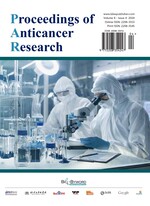Abstract
Objective: To investigate the therapeutic effects and mechanisms of human mesenchymal stem cell-derived exosomes (hMSCs-Exo) carrying the NGF gene in treating ischemic stroke in rats, aiming to provide new insights and treatment methods for ischemic stroke therapy. Methods: After successful construction of the cerebral ischemia model in 40 male SPF-grade SD rats aged 6–8 weeks, the model rats were randomly divided into 4 groups: Sham group, PBS group, hMSCs-Exo group, and NGF-hMSCs-Exo group, with 10 rats in each group. The rat MCAO model was prepared using the classic filament method, and NGF-hMSCs-Exo were injected via the tail vein into the MCAO model rats. The expression of the NGF gene in brain ischemic tissues, neuronal regeneration, and rat neurological function recovery were observed using TTC staining, memory function evaluation, Western blot, qRT-PCR, and other methods. Results: Compared with the Sham group, neurological deficits were significant in the PBS group (P < 0.01). Compared with the PBS group, neurological scores improved in the hMSCs-Exo group and NGF-hMSCs-Exo group (P < 0.05). Compared with the hMSCs-Exo group, the improvement in neurological deficits was more significant in the NGF-hMSCs-Exo group (P < 0.05). The infarct area after NGF-hMSCs-Exo intervention was significantly reduced (P < 0.05) compared with the Sham group. Compared with the PBS group, relative expression levels of NGF mRNA and protein decreased, while Caspase-3 mRNA and protein expression significantly increased in the PBS group (P < 0.01). Compared with the PBS group and hMSCs-Exo group, there were differences in NGF and Caspase-3 mRNA and protein expression in the NGF-hMSCs-Exo group rat brain tissues (P < 0.05). Conclusion: Treatment with human mesenchymal stem cell-derived exosomes carrying the NGF gene improves cognitive function and exerts protective effects on SD rats while inhibiting apoptotic levels in cells.
References
You T, Tan W, 2020, The Effect of Tanreqing Injection on Motor Function and Nerve Growth Factor Content in Acute Stroke Complicated with Pulmonary Infection. Chinese Journal of Traditional Chinese Medicine, 38(8): 187–190.
Chen N, Fan F, Li S, et al., 2022, The Role and Mechanism of Traditional Chinese Medicine in Regulating Mesenchymal Stem Cell-Derived Exosomes for the Treatment of Ischemic Stroke. Chinese Journal of Tissue Engineering Research, 26(13): 2081–2086.
Zhou G, Bai W, Shao J, 2023, Research Progress on the Effects of Exosomes and Their Carried microRNAs on Brain Ischemia-Reperfusion Injury. Journal of Chongqing Medical University, 48(7): 840–847.
Wang Y, Lai X, Wu D, et al., 2021, Umbilical Mesenchymal Stem Cell-Derived Exosomes Facilitate Spinal Cord Functional Recovery Through the miR-199a-3p/145-5p-Mediated NGF/TrkA Signaling Pathway in Rats. Stem Cell Res Ther, 12(1): 117. https://doi.org/10.1186/s13287-021-02148-5
Hao L, Lu L, Li Q, et al., 2024, The Effect of Bone Marrow Mesenchymal Stem Cell-Derived Exosomes Overexpressing miR-124-1 Gene on the M2 Polarization of Microglia in Stroke. Journal of Army Medical University, 46(5): 458–466.
Liu A, Chen Y, Zhang J, et al., 2021, Correlation Between Prognosis of Acute Ischemic Stroke and Serum Fibroblast Growth Factor 23 and Chemokine CXCL12. Chinese Journal of Gerontology, 41(20): 4350–4352.
He J, Chen L, Tang F, et al., 2023, Multidisciplinary Team Collaboration Impact on NGF, BDNF, Serum IGF-1, and Life Quality in Patients with Hemiplegia after Stroke. Cell Mol Biol (Noisy-Le-Grand), 69(12): 57–64. https://doi.org/10.14715/cmb/2023.69.12.10
Chen S, Zhu J, Zhao X, et al., 2023, Effects of Neural Stem Cell-Derived Exosomes on Astrocyte TGF-Beta1 Signaling and Inflammatory Factors in Rats with Cerebral Ischemia-Reperfusion Injury. Practical Journal of Medicine, 39(13): 1600–1605.
Tani A, Sakakima H, Otsuka S, et al., 2023, Stimulation of Functional Recovery Via Neurorepair Mechanisms by the Traditional Japanese Kampo Medicine, Ninjin'yoeito, and Physical Exercise in A Rat Ischemic Stroke Model. J Ethnopharmacol, 302(Pt B): 115927. https://doi.org/10.1016/j.jep.2022.115927
Povarnina PY, Antipova TA, Gudasheva TA, et al., 2022, Neuroprotective and Neuroregenerative Properties of Dimeric Dipeptide Mimetics of Individual NGF and BDNF Loops Under Conditions of an Experimental Ischemic Stroke Model. Pharm Chem J, 56: 1019–1023. https://doi.org/10.1007/s11094-022-02745-5
